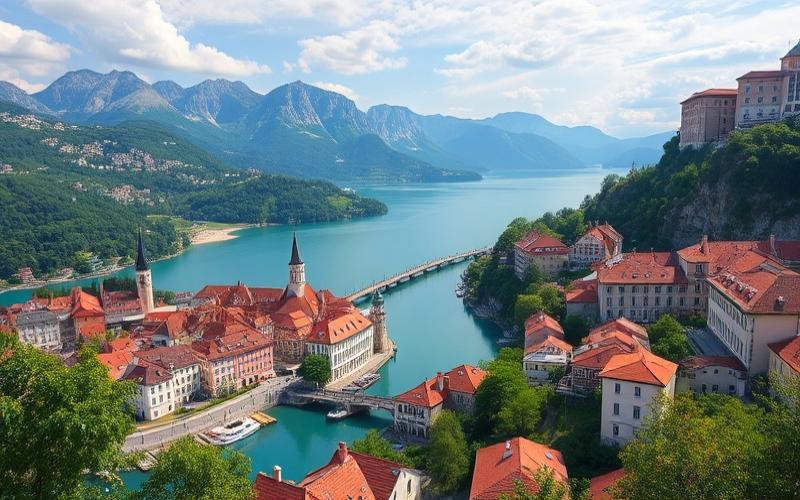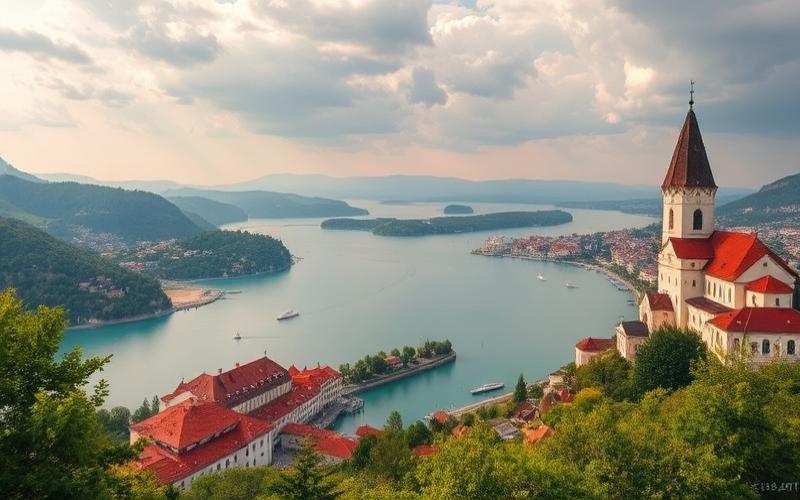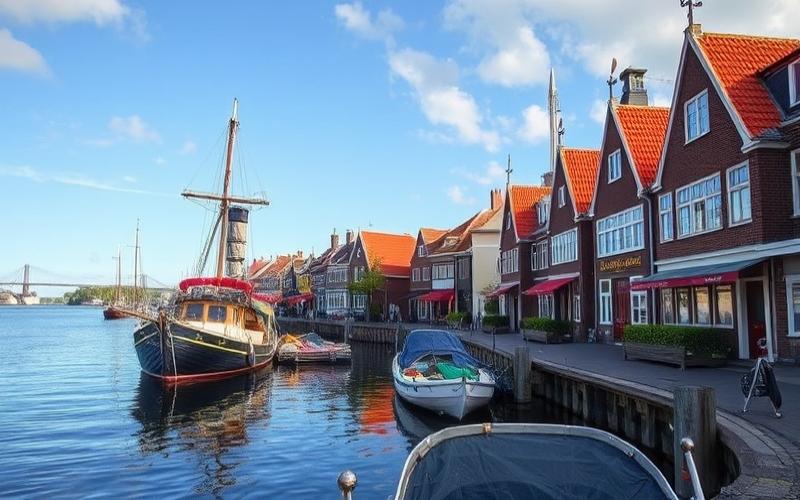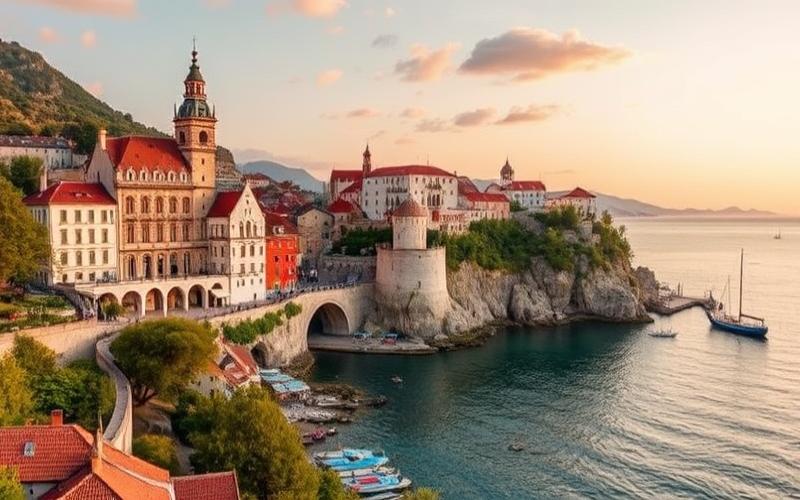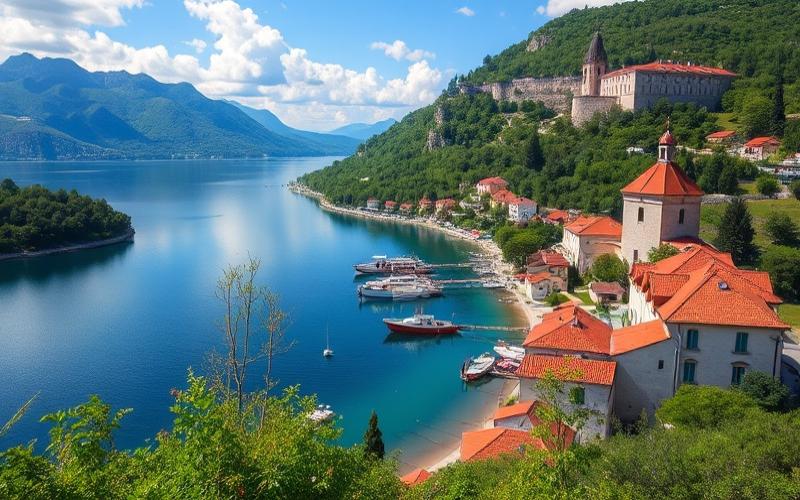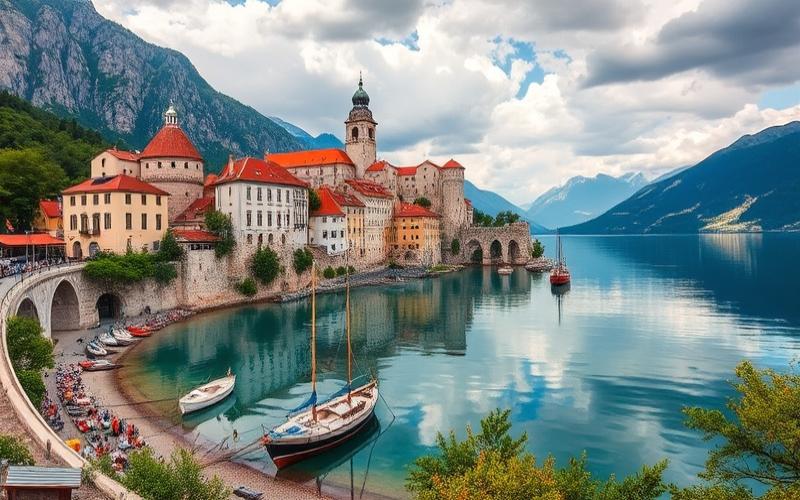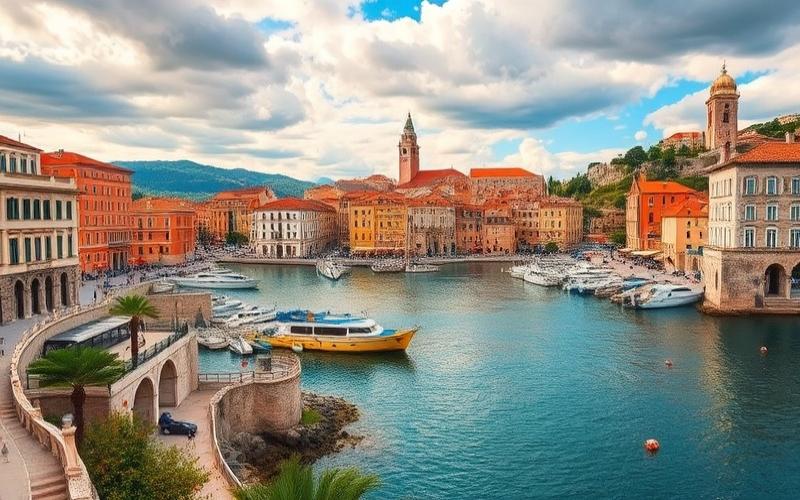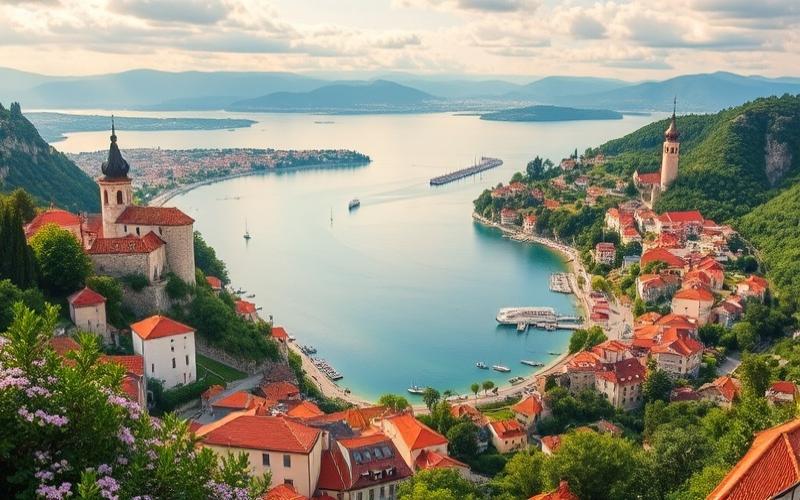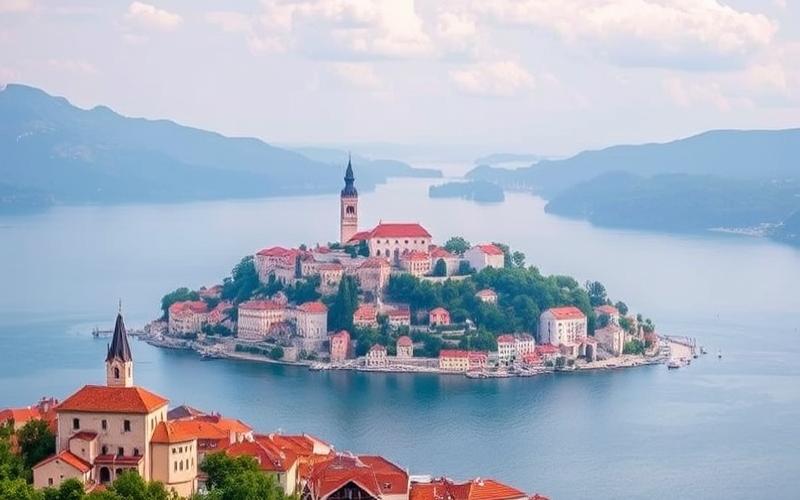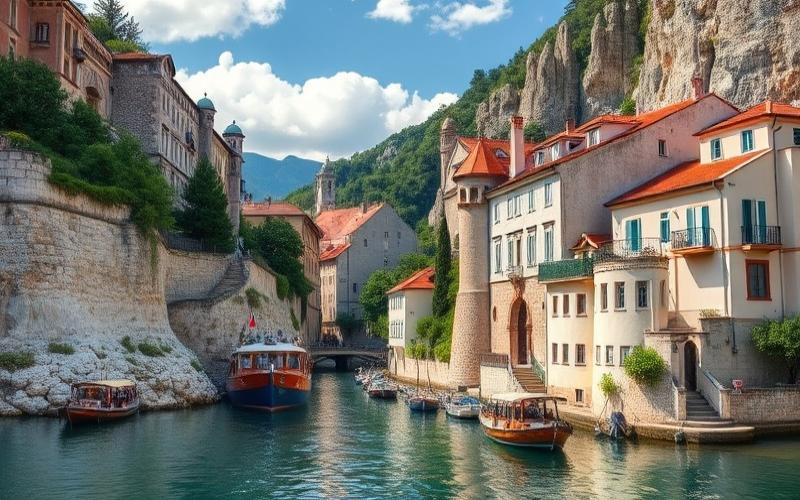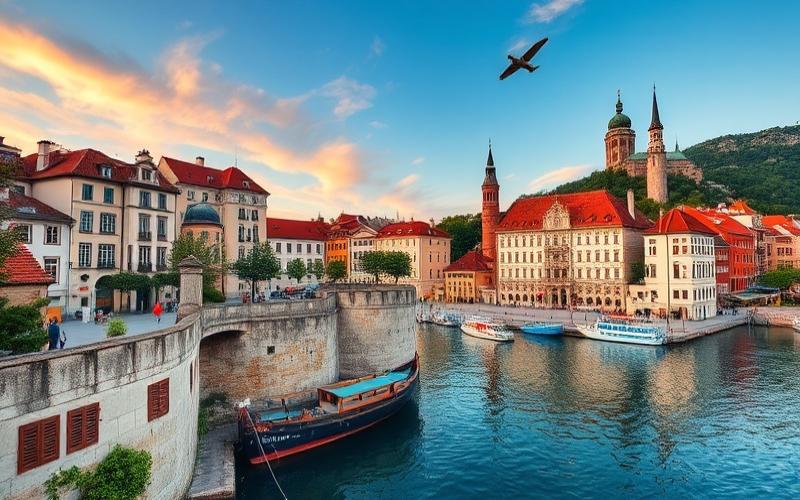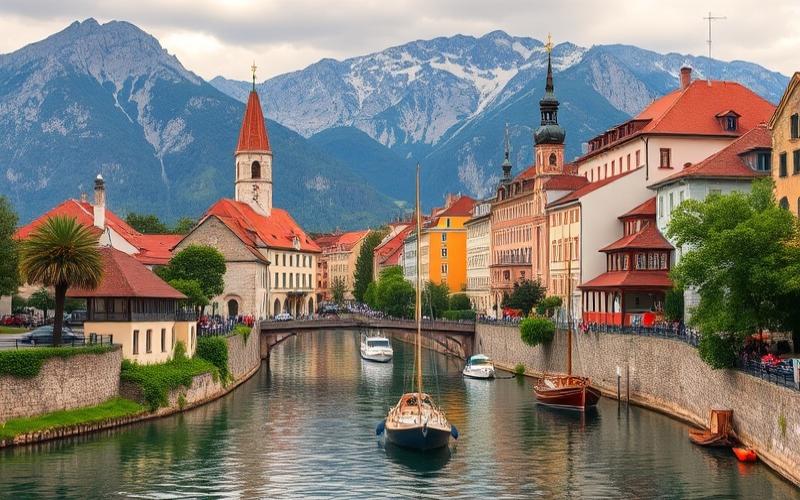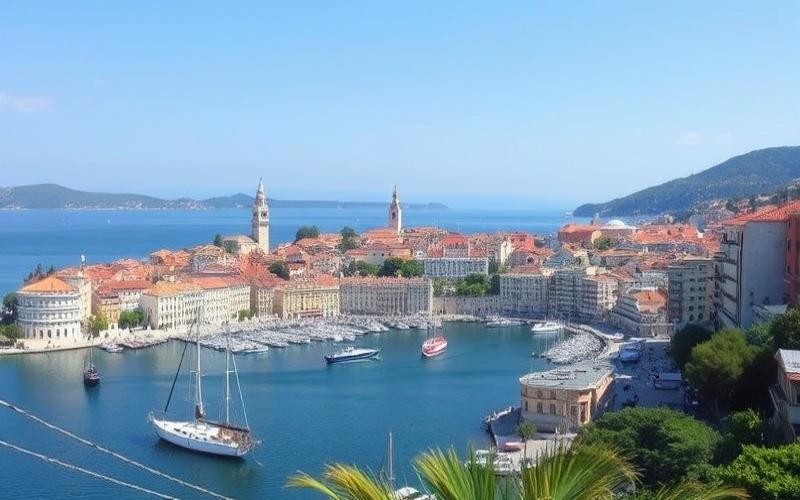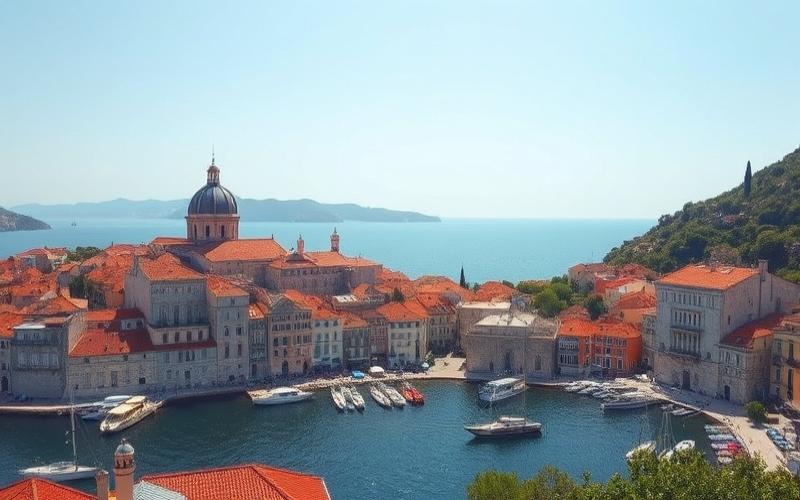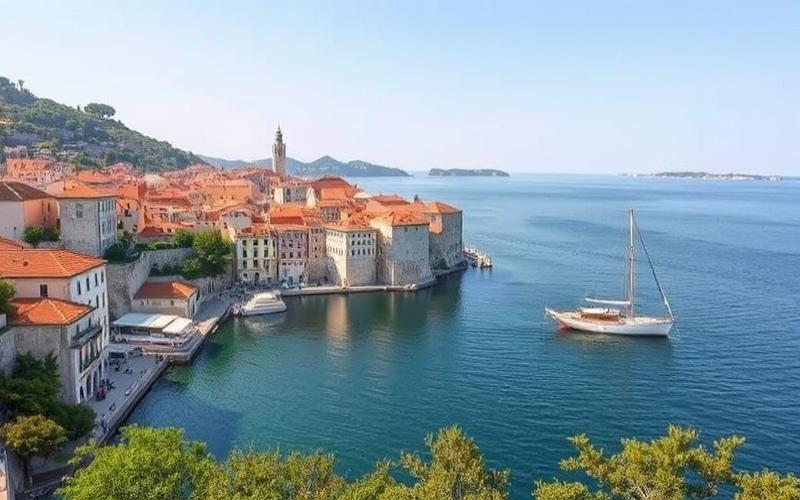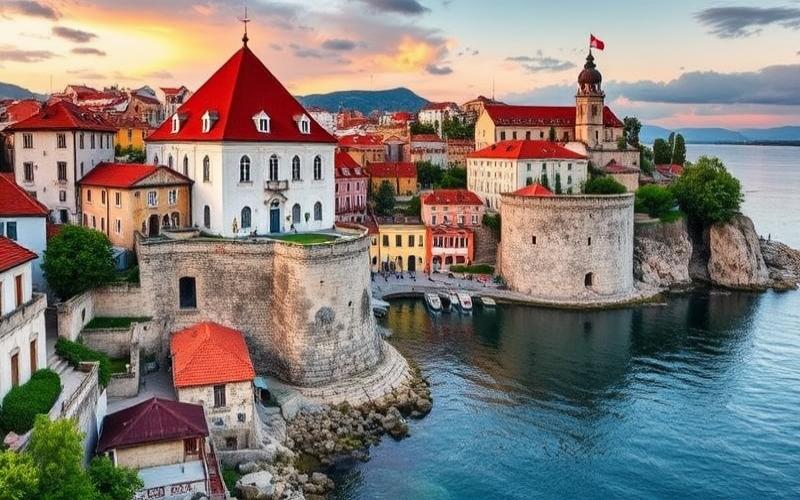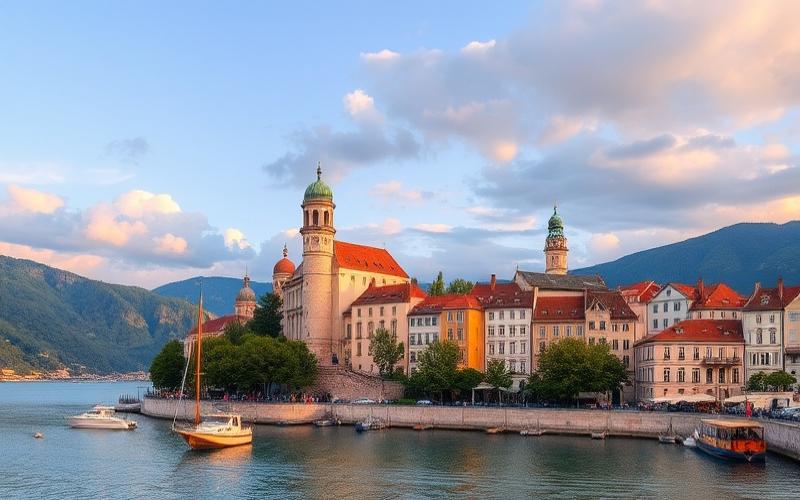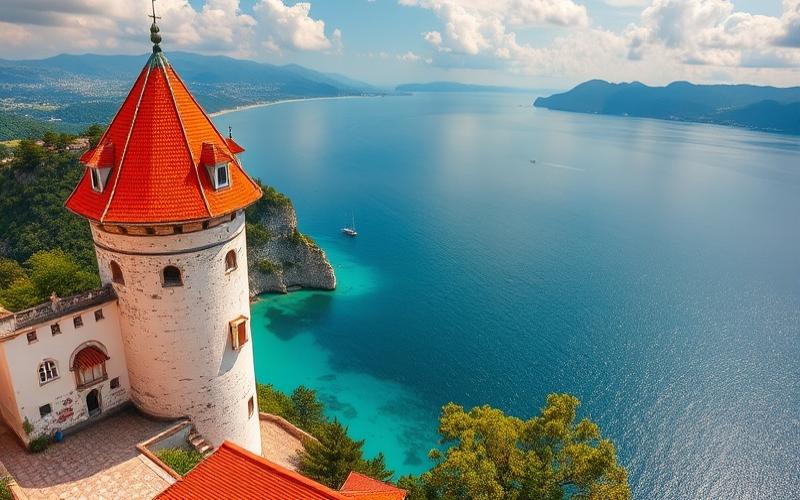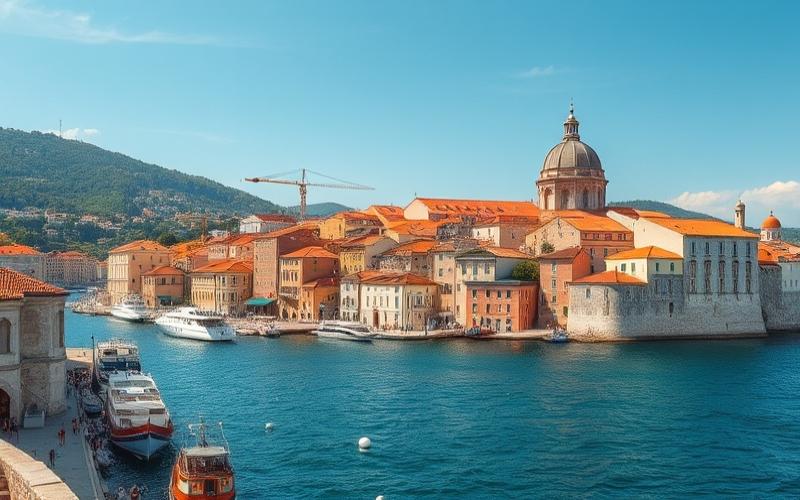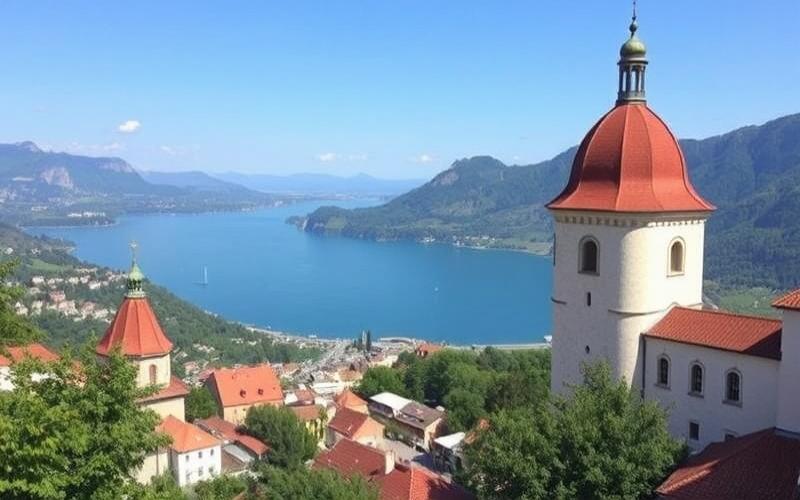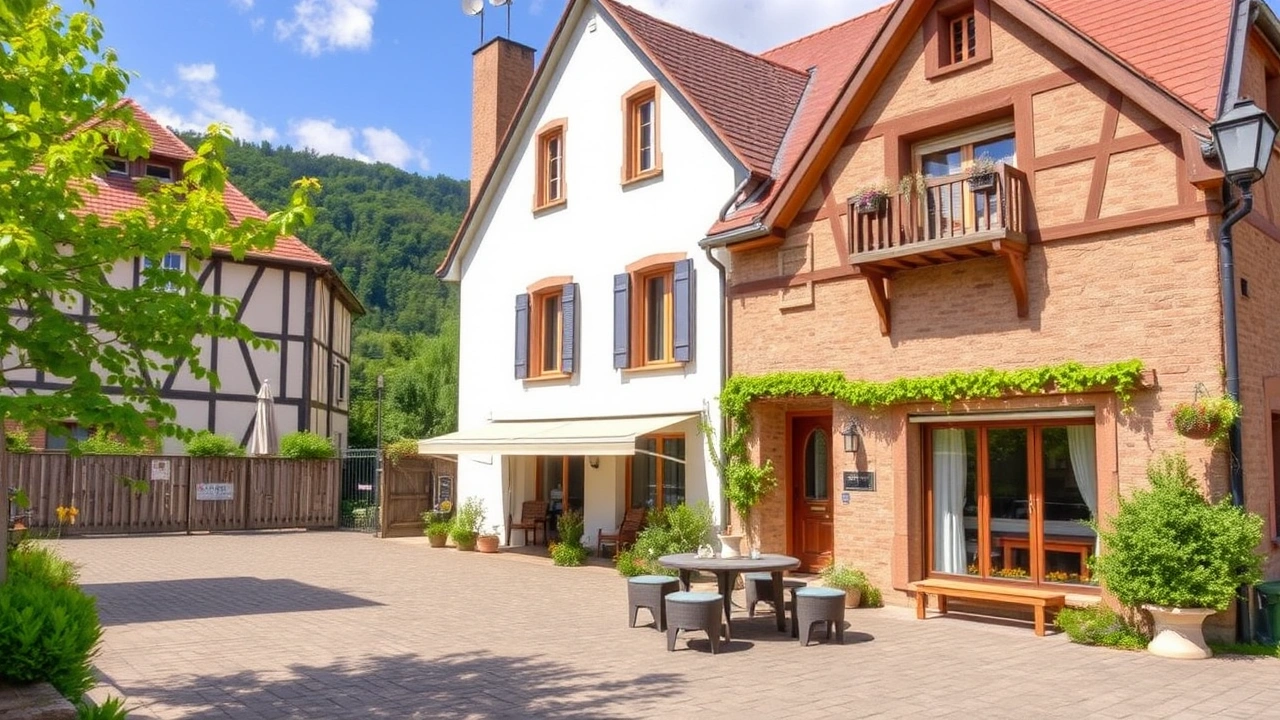
 Published on and written by Cyril Jarnias
Published on and written by Cyril Jarnias
Croatian Real Estate Financing: A Dynamic and Accessible Market
In Croatia’s booming real estate landscape, securing adequate financing might seem challenging, but it’s entirely achievable with the right information and strategies.
Whether you’re a foreign investor seeking opportunities in sought-after destinations like Dubrovnik or Split, or a local resident ready to make the leap into homeownership, understanding the specifics of the Croatian market is essential.
Financing Solutions Tailored to Your Projects
This article will guide you through the most effective financing options, whether it’s:
- Mortgage loans offered by local banks
- Innovative financial solutions adapted to international buyers
Good to Know:
The Croatian real estate market offers interesting opportunities but requires a good understanding of local regulations.
Embark on this journey to discover how to realize your real estate dreams in Croatia, while navigating among the local regulations and potential obstacles this dynamic market presents.
Can a Foreigner Realize Their Real Estate Dream in Croatia?
Regulations for Foreign Property Purchases in Croatia
| Buyer’s Nationality | Purchase Conditions |
| EU/EEA Citizens | Same rights as Croatians to purchase any type of property, except agricultural land and forests. Simplified procedure. |
| Non-EU/EEA Citizens | Purchase possible subject to reciprocity: must obtain authorization from the Ministry of Justice or Foreign Affairs, which can take from a few weeks to several months. |
| All Foreigners | Prohibition on purchasing agricultural land and forests. |
Key Administrative Steps
- Obtain a Croatian tax identification number (OIB).
- Open a local bank account.
- Verify the property title and cadastral status (often through a lawyer or notary).
- Sign a preliminary sales agreement with a deposit payment (typically 10%).
- For non-EU citizens, submit a ministerial authorization application with complete documentation.
- Sign the final sales deed before a notary.
- Registration with the municipal cadastre and local land registry.
- Payment of property acquisition tax (3% of the price).
- Registration period as owner can take up to 60 days.
Financing Options for Non-Residents
| Type of Financing | Details and Eligibility Criteria |
| Local Croatian Banks | Limited access for non-residents, but possible with strong guarantees (stable income, significant personal contribution, proof of fund origin). Interest rates generally higher than for residents. |
| International Banks | Some foreign banks operating in Croatia may offer mortgage loans, often conditional on having a bank account or other ties with the bank. |
| Personal Financing | Equity contribution recommended, as credit access remains restrictive for foreigners without established ties in the country. |
Tax Implications for Foreign Buyers
- Property Acquisition Tax: 3% of purchase price, payable after land registry registration.
- No Annual Property Tax (excluding secondary residences).
- Secondary Residence Tax: between €0.50 and €2 per m²/year, depending on municipality.
- No Inheritance Tax for children and spouses.
- Rental income is taxable in Croatia, with specific reporting obligations.
Expected Fees and Costs
- Notary fees: 1-2% of purchase price.
- Lawyer fees (optional but recommended): 1-2% of price.
- Real estate agency fees: typically 3% of price.
- Registration fees.
Practical Tips
- Always verify existing charges or mortgages on the property through the land registry.
- Prefer assistance from a specialized local lawyer.
- Plan for administrative delays, especially for non-EU citizens.
- Require certified translations for all key documents if you don’t speak Croatian.
- Anticipate obtaining the OIB and opening a bank account early in the process.
Successful Case Example
“After several stays on the Dalmatian coast, a French couple decided to buy an apartment in Split. With the help of a local lawyer, they quickly obtained their OIB, opened a bank account, signed the preliminary agreement, and finalized the purchase in less than three months. They now rent their property during summer, generating satisfactory rental returns, and appreciate the absence of property tax. They strongly recommend relying on local professionals to avoid administrative pitfalls.”
Investing in Croatia is accessible and attractive for foreigners, provided they prepare well, respect local procedures, and surround themselves with experts to secure the transaction.
Good to Know:
Foreigners can indeed realize their real estate dreams in Croatia but must navigate certain specific regulations. EU citizens can purchase real estate under conditions similar to local residents, but for other nationalities, restrictions may apply, often requiring reciprocity from the home country. Financing options for non-residents include mortgages offered by local banks like Zagrebačka banka, or even international institutions. Eligibility criteria typically include proof of stable income and personal contribution. Tax implications include the real estate transfer tax, which can amount to approximately 3% of the purchase price. For a hassle-free purchase process, it’s advisable to hire a local lawyer to navigate administrative procedures and ensure clear property titles. A notable success case is that of a Swedish couple who, after getting good advice, were able to purchase a villa on the Dalmatian coast without any issues.
Key Documents to Realize Your Real Estate Project in Croatia
List of Required Documents for Real Estate Purchase in Croatia:
- Valid ID (passport or identity card) for each buyer.
- Proof of Citizenship (passport copy, nationality certificate).
- Recent Bank Statements proving financing capacity or bank pre-approval letter.
- Civil Status Documents (birth certificate, family record book or marriage certificate if purchasing as a couple).
- Croatian Tax Identification Number (OIB), obtained from the local tax administration.
- Preliminary Sales Agreement (pre-contract) signed by both parties.
- Final Purchase Contract notarized.
- Property Title (seller’s proof of ownership).
- Land Registry Extract (list of any charges, cadastral status).
- Zoning Certificate indicating property nature and use (residential, agricultural, etc.).
- Proof of Real Estate Transfer Tax Payment (4% of purchase price).
- Other Specific Documents depending on situation (company statutes if purchasing through legal entity, Ministry of Justice authorization for non-EU nationals).
Documents Requiring Translation:
Documents written in a foreign language often require a certified translation into Croatian or, if necessary, into French for certain recent formalities. This translation must be done by a sworn translator. Lack of certified translation may result in refusal of registration or document validation.
Typical Administrative Procedures in Croatia:
- Collection and preparation of all required documents.
- Signing the preliminary contract and payment of a security deposit (generally 10% of sale price).
- Verification of property ownership and legal status with the land registry.
- Obtaining the Croatian tax identification number (OIB) for foreign buyer.
- Opening a Croatian bank account for fund transfers.
- Submission of complete file to competent ministry (Ministry of Justice for non-EU nationals) for purchase authorization, if applicable.
- Drafting of final sales contract by lawyer, then signing and notarization.
- Registration of transaction with municipal land registry and payment of transfer tax.
Role of Local Notaries and Lawyers:
The lawyer verifies the property’s legal compliance, transaction legality, document validity, and drafts the sales contract.
The notary authenticates signatures, certifies official copies, and guarantees deed validity before Croatian authorities.
Both professionals accompany the transaction until final registration with the land registry, ensuring legal security of the purchase and protection of parties’ interests.
| Document | Provided By | Certified Translation Required? | Notary/Lawyer Role |
|---|---|---|---|
| ID Document | Buyer | Yes, if not in Croatian | Identity Verification |
| Bank Statement/Financing Capacity | Buyer | Yes, if not in Croatian | Solvency Check |
| Civil Status Document | Buyer | Yes, if not in Croatian | Family Status Verification |
| Preliminary Contract | Lawyer/Parties | Yes, if not in Croatian | Drafting and Certification |
| Final Purchase Contract | Lawyer/Parties | Yes, if not in Croatian | Drafting and Notarization |
| Property Title | Seller | Yes, if not in Croatian | Ownership Check |
| Land Registry Extract | Local Administration | No, issued in Croatian | Charge Verification |
| OIB (Tax Number) | Tax Administration | No | Assistance with Obtainment |
| Ministerial Authorization | Competent Ministry | Yes, if not in Croatian | File Preparation |
Important:
The presence of a lawyer and notary is essential to guarantee transaction regularity and protection of buyer rights.
Good to Know:
To realize your real estate project in Croatia, it’s crucial to prepare a list of essential documents including valid identification, bank statements proving your financing capacity, and civil status documents. Regarding the property, you’ll need to provide property titles or a preliminary sales agreement. Ensure you obtain certified translations of these documents if necessary. Typical administrative procedures involve submitting these documents to competent authorities, often with assistance from local notaries and lawyers who play a crucial role in verifying and finalizing the transaction. For example, a notary can certify the sales contract legitimacy, while a lawyer can verify the property’s background, thus minimizing risks of potential complications.
Essential Conditions for Successful Real Estate Financing in Croatia
Croatian banks evaluate mortgage applications according to strict criteria, paying particular attention to borrower profile, income stability and level, as well as credit history.
Main Assessment Criteria of Croatian Lenders:
- Borrower Profile
- Age: often under 45 for some subsidized programs.
- Permanent residence in Croatia required to access certain public aids.
- Family status and absence or prior sale of another property (specific conditions for subsidies).
- Income Stability and Level
- Detailed analysis of net monthly income; maximum debt capacity estimated around €570/month for average net salary (€1,324).
- Stable employment required; permanent contract preferred.
- Credit History
- Examination of existing bank liabilities and internal scoring.
- Absence of major banking incidents or recent defaults.
Importance of Initial Contribution
| Required Personal Contribution | Frequency |
| Approximately 20% | Very common |
| Absolute Minimum | Sometimes accepted from 10%, but rare |
A substantial contribution remains essential as it reassures the bank about client solvency while limiting the financed amount.
Croatian Market Specifics
- Current interest rates around 4% (varies by borrower profile and institution), with recent upward trend strongly impacting total cost.
- Standard term: between 15 and 30 years, sometimes imposed by public aid conditions.
- Non-resident foreigners face:
- Increased financial strength requirements
- Higher contribution demanded (often more than required from residents)
- Frequent difficulties obtaining local loans; often recommended to consider financing in home country if possible.
Main Financing Options
Standard Mortgage Loans
Open access to residents and non-residents, subject to above conditions.
State-Subsidized Loans (“APN”)
Designed only for Croatian citizens meeting certain criteria:
- Under 45 years old
- Not already owning a home
- Minimum term: generally set at fifteen years
The subsidy covers between 30% and up to more than half of monthly payments for five years (extension possible depending on family situation).
Additional Government Assistance
- Possible extensions in case of:
- Family expansion (+2 years per child born)
- Severe disability in household (+2 additional years)
Other Alternatives
Frequent recourse to prior loan buyout or consolidation to optimize debt ratio before any new application.
Good to Know:
To obtain successful real estate financing in Croatia, it’s crucial to carefully prepare your application considering local lenders’ preferences. They closely examine borrower profile, income stability, and credit history. An initial contribution of approximately 20% is often required. Interest rates vary around 3-4% depending on risk profile and market fluctuations. Notably for foreign buyers, some banks may impose additional conditions such as income domiciliation or opening a Croatian bank account. Several loan options exist, some supported by government programs aimed at facilitating property acquisition. To make the most of available offers, mortgage broker intervention is strongly recommended, as they can identify the best offers and negotiate favorable terms.
Importance of Mortgage Broker
Using a specialized broker allows:
- Significantly increasing chances through optimized application presentation,
- Effectively comparing multiple bank offers,
- Being accompanied in all local administrative procedures,
- Better negotiating rates, terms, or additional fees with local and foreign partner banks.
⧉ Professional support therefore maximizes your chances both financially and security-wise during a successful real estate acquisition in Croatia.
Disclaimer: The information provided on this website is for informational purposes only and does not constitute financial, legal, or professional advice. We encourage you to consult qualified experts before making any investment, real estate, or expatriation decisions. Although we strive to maintain up-to-date and accurate information, we do not guarantee the completeness, accuracy, or timeliness of the proposed content. As investment and expatriation involve risks, we disclaim any liability for potential losses or damages arising from the use of this site. Your use of this site confirms your acceptance of these terms and your understanding of the associated risks.



